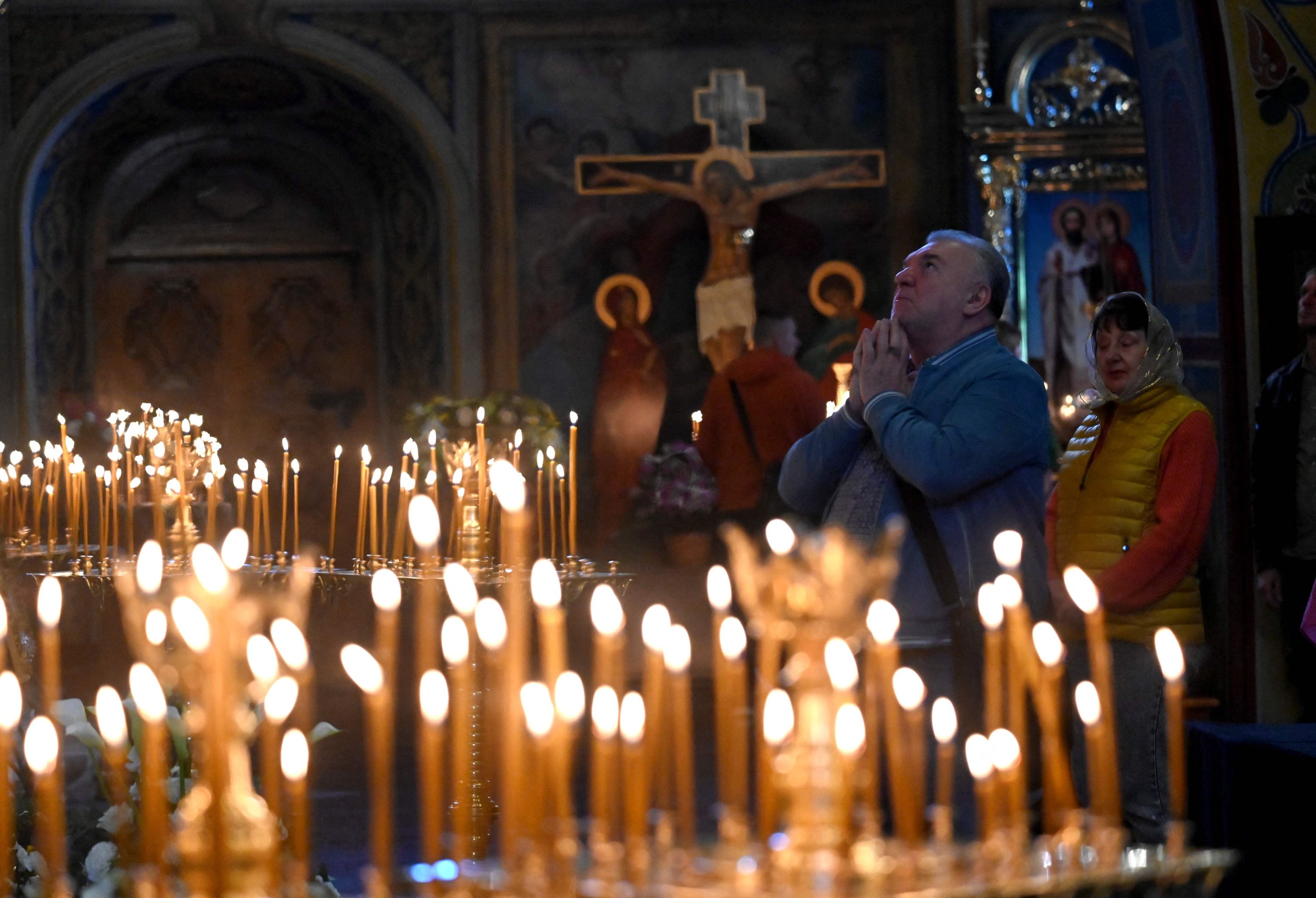© Turkuvaz Haberleşme ve Yayıncılık 2026
Ukrainian President Volodymyr Zelenskyy said Sunday that Russian troops continued shelling and attacks along the front despite President Vladimir Putin’s unexpected but short-lived declaration of an Easter truce.
The 30-hour truce starting Saturday evening would be the most significant pause in the fighting throughout the three-year conflict.
But on Sunday, Zelenskyy accused Russia of having maintained its attacks on the front line after the truce started at 3 p.m. GMT Saturday.
"Across various frontline directions, there have already been 59 cases of Russian shelling and five assaults by Russian units," Zelenskyy said on social media, citing a report as of 6 a.m. (3 a.m. GMT) from Ukrainian commander-in-chief Oleksandr Syrsky.
He said that in the six hours up to midnight (9 p.m. GMT) Saturday, there were "387 instances of shelling and 19 assaults by Russian forces," with drones "used by Russians 290 times."
Ukraine's air force on Sunday morning did not report any drone or missile attacks, however.
"Overall, as of Easter morning, we can state that the Russian army is attempting to create the general impression of a cease-fire, while in some areas still continuing isolated attempts to advance and inflict losses on Ukraine," Zelenskyy's post said.
Zelenskyy said Ukraine would respond "symmetrically" to any attacks.
Officials in Russian-held areas of eastern Ukraine, in turn, accused Kyiv's troops of violating the cease-fire with shelling of an occupied village and town.
A reporter for RIA Novosti state news agency in the Russian-held city of Donetsk, reported hearing explosions and seeing a fire on Sunday morning.
Putin's order to halt all combat over the Easter weekend came after months of efforts by U.S. President Donald Trump to get Moscow and Kyiv to agree on a cease-fire.
On Friday, Washington even threatened to withdraw from talks if no progress was made.

Putin announced the truce from 6 p.m. Saturday to midnight Sunday in televised comments during a meeting with the Russian chief of the general staff, Valery Gerasimov.
Zelenskyy responded by saying Ukraine would follow suit and proposed extending the truce beyond Sunday.
"Russia must fully comply with the conditions of the cease-fire. Ukraine's proposal to implement and extend the cease-fire for 30 days after midnight tonight remains on the table," Zelenskyy's post said Sunday.
Earlier, he suggested that "30 days could give peace a chance" – while pointing out that Putin had already rejected a proposed 30-day full and unconditional cease-fire.
Putin had said the truce for the Easter holiday was motivated by "humanitarian reasons."
While he expected Ukraine to comply, he said that Russian troops "must be ready to resist possible breaches of the truce and provocations by the enemy."
Putin said the latest truce proposal would show "how sincere is the Kyiv regime's readiness, its desire and ability to observe agreements and participate in a process of peace talks."
Russia launched its full-scale invasion of neighbouring Ukraine in February 2022.
Previous attempts at holding cease-fires for Easter in April 2022 and Orthodox Christmas in January 2023 were not implemented after both sides failed to agree on them.
In an Easter address, Zelenskyy said that the meaning of the religious holiday was that "evil will retreat, and life will triumph."
"Today, these words resonate in every Ukrainian heart. And they strengthen our faith, which, in spite of everything, has not faded for 1,152 days of full-scale war," he said.
In Kyiv on Sunday, people expressed doubts over whether Russia would observe a truce while welcoming Zelenskyy's proposal to extend it.
"They've already broken their promise. Unfortunately, we cannot trust Russia today," said 38-year-old market trader Olga Grachova.
"Our president has clearly said that if they announce a 30-hour cease-fire, we will announce a 30-day cease-fire. So let them go for it... so that this terrible war ends, so that our people, our soldiers, and children stop dying," said Sergiy Klochko, 30, a railway worker.
But Natalia, a 41-year-old medic, said of Zelenskyy's 30-day proposal: "Everything we offer, unfortunately, remains only our offers. Nobody responds to them."
On the streets of Moscow, Yevgeny Pavlov, 58, did not think Russia should give Ukraine a breather.
"There is no need to give them respite. If we press, it means we should press to the end," he told AFP.
